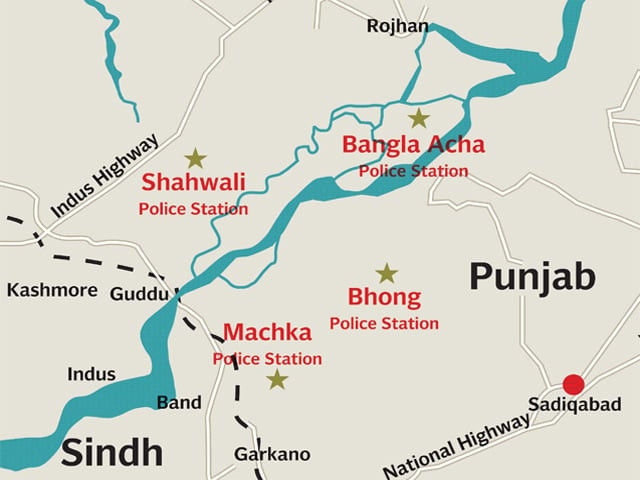The Seraiki province as a political manoeuvre
Creation of Seraiki province is high priority for south Punjab people, PPP exploited it to water down PML-N dominance.

Leader of the Opposition, the PML-N’s Chaudhry Nisar Ali Khan, led his party’s placard — carrying MNAs in protest against what he thought was a procedural malpractice by the speaker, but the resolutions were passed nonetheless because the PPP’s allies held firm. The MQM, in fact, celebrated the resolution on the Seraiki province in Karachi because in principle more provinces would brighten its chances of spreading out from the city and becoming a national party. As for the ANP, it had to sew up a more complex bargain on the basis of an unspoken pledge to not support the Hazara province movement. When all is said and done, however, no province can be formed unless the Constitution is amended and the provincial assemblies have also voted with a two-thirds majority.
It is to embarrass the PPP’s allies, perhaps, that the PML-N too submitted a resolution for the formation of four new provinces: Bahawalpur, Fata, South Punjab and Hazara. In the long run, even this counter-manoeuvre may be good for Pakistan’s governance because of the devolution of federal powers it implies. After all, British India had 16 provinces, and today India has 28!
Finally, was it a mere political manoeuvre? And the answer to that would have to be an unequivocal ‘yes’, but many significant developments in the history of states take place as political ploys. The creation of a Seraiki province has been a high priority for the people of the southern region of Punjab and the PPP has exploited that to water down the PML-N’s dominance. It can also be seen as a counter to what the PPP probably perceives as a threat in the shape of the PML-N policy of leaning on the Sipah-i-Sahaba in the region. This began in March 2011 when Mr Gilani stated that “the formation of a Seraiki province would be part of the PPP manifesto for the next elections”.
Not so long ago, in July 2009, when the PML-Q was still seen as the “qatil” League, the PPP’s central information secretary Fauzia Wahab had warned that “disciplinary action” will be taken against party legislators favouring a “division” of Punjab and had pointed to some southern Punjab “current and former leaders of the PML-Q”, who had gone to the Punjab Assembly and the media to talk about “a separate Seraiki province”. She also said that “the Seraiki province had never been brought up by the PPP leadership in its discussions”.
But the PPP has struck the right chord. The PML-Q is no longer a threat thanks to the PML-N’s resistance to “reconciliation” and the Seraiki region comprising the three divisions of Bahawalpur, Multan and Dera Ghazi Khan, seems to be responding to Mr Gilani’s promise of good times, a glimpse of which they have already seen in the projects started by him in Multan. The principle of devolution is an accepted wisdom tested by the practice of states in Western Europe.
Why should the political elite of Multan live in Lahore? The answer is: because the provincial assembly and the provincial bureaucracy are located here. People living in the south see that the budget arrives in Lahore and is mostly spent in Lahore and the surrounding divisions. They see the meagre proportion of the budget spent in the south and are unhappy about it. The Constitution has been recently amended to give the provinces more powers that were earlier reserved for the Centre. Perhaps, the time has come to amend the Constitution again to enable the elected representatives to create more provinces on sound administrative principles.
Published in The Express Tribune, May 5th, 2012.













COMMENTS
Comments are moderated and generally will be posted if they are on-topic and not abusive.
For more information, please see our Comments FAQ